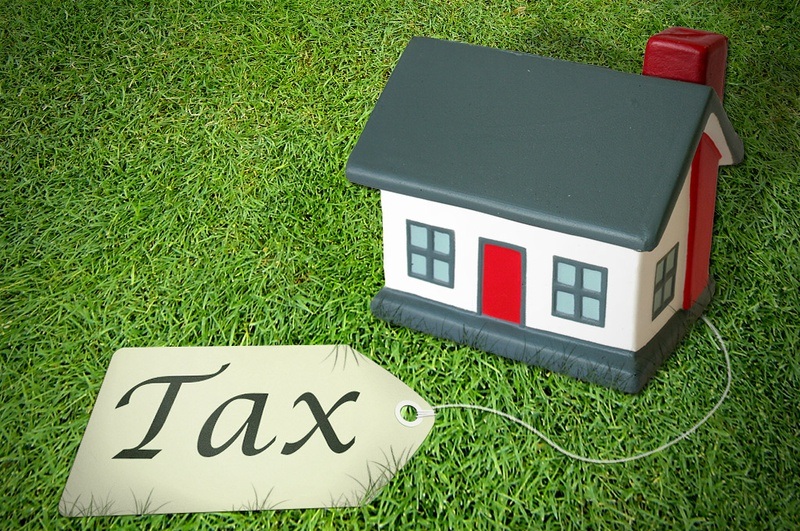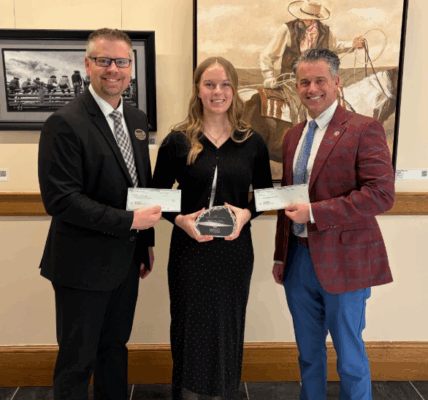Property tax relief at the forefront of the 2024 Wyoming Legislature budget session

By Jasmine Hall
Jackson Hole Daily
Via- Wyoming News Exchange
JACKSON — Addressing rising property tax bills was solidified as a state legislative priority on Wednesday.
Four members of the Teton County delegation heard from local officials and community stakeholders about issues on their radar heading into the upcoming 2024 budget session.
The session begins Feb. 12, and lawmakers will spend a month largely focused on establishing the state budget for the next two years. However, there is a short window of opportunity to pass legislation not related to the budget.
It’s expected that hundreds of such bills will be filed before the Feb. 14 deadline. Two-thirds of the House or the Senate has to support a bill in order for it to move forward in the legislative process.
From funding of school facilities to mental health care access, there were countless appropriations in the budget and individual bills that Teton County lawmakers’ constituents recommended they pay attention to.
But one topic that has taken the entire state by storm came up repeatedly throughout Wednesday’s listening session in the Teton County commissioners’ chambers.
Jackson Town Councilor Jonathan Schechter said he wanted to calibrate expectations for constituents for both property tax relief and the possibility of a real estate transfer tax.
“Are there things that we can do on either score to help bad things from happening or help make good things occur?” he asked state Sen. Mike Gierau, D-Jackson, and Reps. Mike Yin, Liz Storer, both D-Jackson, and Andrew Byron, R-Jackson.
Storer and Byron are members of the Joint Revenue Committee, which spent the interim developing property tax legislation aimed at meaningful and targeted relief. The committee sponsored five draft bills that probe solutions, such as creating a 50% property tax exemption for residents who have paid taxes for at least three decades, or expanding the property tax refund program further.
Thousands of residents across Wyoming received a 50% refund from the state, and there were 155 homeowners in Teton County who paid zero property taxes after being accepted by both the state and county refund program.
A question was raised in the meeting Wednesday as to whether the issue of some residents getting a 100% property tax refund should be addressed.
Byron said he was shocked to hear the number in the county staff report.
“So as these bills continue to roll out, it is certainly on my radar, too,” he said.
The Joint Revenue Committee isn’t the only one trying to bring home tax relief for constituents. Other lawmakers have begun filing their bills for homestead exemptions and property tax increase caps and will have to meet a high threshold for introduction in the Legislature.
Teton County Assessor Melissa Shinkle has been paying close attention, along with Teton County Treasurer Katie Smits. The assessor will likely be responsible for administering the relief, and the treasurer is aware of how property tax cuts could affect revenue.
Property taxes don’t go toward the state general fund, but rather to education and local government budgets. Lawmakers have spent time throughout the interim carefully considering how tax relief could impact these lines of funding or create additional costs for the state to administer.
“I would have to have at least one full-time person working affidavits all year round, if not two,” Shinkle told lawmakers, when explaining how residents seeking exemptions would have to prove they lived in homes full time. “So, when the assessors say in public that it will cost money, it definitely will cost money.”
Wyoming Association of Municipalities Legislative Director Bob McLaurin,a former Jackson town manager, also wanted the Legislature to consider replacing the funds that smaller communities might lose. Otherwise, essential services such as law enforcement or snow removal could fall through the cracks.
“As you start cutting local government taxes, you’re going to put a pretty severe burden on some of the smaller communities,” he said. “We’re going to be requesting that any bill to come forward would have a backfill provision. I know it’s probably highly unlikely, but we want to be constructive partners with the Legislature.
“We know in this environment that we need to do something about property taxes, but just be cognizant that some of our smaller communities and counties are really dependent.”
Gierau has been focused on developing the budget in the Joint Appropriations Committee, but he said he would want to see a sunset date on all property tax measures that come forward. In that scenario, the law wouldn’t be in effect beyond two years, to ensure there were no major or long-term unintended consequences of the many bills on the table.
He described it as a “fail-safe option.”
“We may look at what we’ve done and say, ‘Ooh,’ ” he said. “And then to ask our fellow legislators to vote to repeal a tax break would virtually be a hill we would never be able to climb.”




